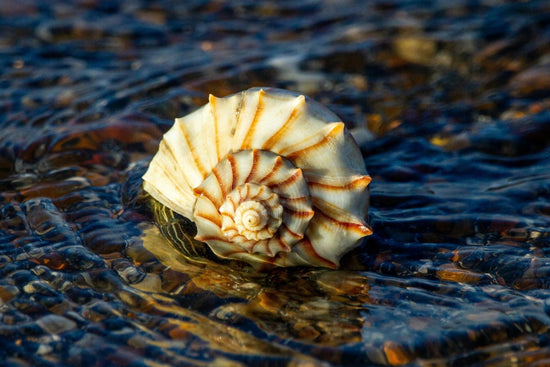For Mental Health Awareness Month we've begun a three part blog series, focusing one at a time on the mind, body, and soul. This week, let's explore the spiritual side of things. Full disclosure: this installment gets metaphysical!
To begin, here are two grounding reminders to help you find where you are:
- You are not your body; your body is how you physically experience life.
- You are not your mind, its thoughts or emotions; you are what experiences your thoughts and emotions.
So, how do we care for the experiencer?
Connect With Community

Even introverts need community! (Just maybe in smaller doses.)
Humans are hardwired to seek out each other's company. We evolved to depend on each other not just for procreation but for food, safety, and the power of shared, collective knowledge. Social rejection hurts because our brains evolved to equate social rejection with death - the likely consequence of being denied access to fire, shelter, and cooperatively hunted and gathered food.
There's something more, though. It's been said in many ways by many people that we are the universe experiencing itself, that we are what perceives this massive thing that we are each actually a part of. And if that's true, I'd like to submit for consideration that when we allow ourselves to be loved, we are allowing the universe to love us.
Feed your soul by soaking up all the love the universe is offering you. This planet literally grows food and medicine out of the ground for you. That is love! Your chosen family fervently hopes for your success, helping you manifest your intentions and rejoicing when you thrive. They are the universe celebrating you! When you combine your own skills and abilities with someone else's to create something or solve a problem, you are the universe in cooperation with itself. How cool is that?
Remind yourself that because there is only one of you in all of time, what you have to offer is totally unique, and the world would be less wonderful without it. So accept the compliment. Wear the thing you're scared to wear. Apply for that position. Publish that book you're writing. Join an organization. Spend quality time with your friends and family. And be nourished by the universe appreciating what you bring to the table.
And then, spend some time alone.
Accept Solitude

There is a poem by e.e. cummings that I like to remember when the time comes for solitude. It goes like this:
l(a
le
af
fa
ll
s)
one
l
iness
Outside the parentheses is the deconstructed word, "loneliness". Inside the parentheses, "a leaf falls". But I don't think this poem is about being lonely at all.
The word "loneliness" is chopped up by the parenthetical clause, separating its first "L" from the rest of the word, which becomes "oneliness" - the state of being one.
One appears repeatedly in this poem, even in the overall shape of the piece, which resembles the character "1". The lower case L's are a stand-in for the number, and many lines reflect linguistic representations of the singular, as in "a", "le", and the literal word "one". The last line becomes its own word: "iness" - which can be interpreted as the state of being oneself.
It's as if the mindful experience of watching this leaf flutter to the ground changed the poet's perspective from loneliness to oneliness, or from lonely, to just alone.
Alone is not sad. Alone is just a fact.
Humans may need community but we also need solitude. We need time to shed all pretenses and simply exist, to get in touch with who we are and what it feels like to be.
Don't be afraid of being alone. Take it as an opportunity to get to know yourself. To entertain yourself, to enjoy yourself, to pleasure yourself, to better yourself, and to genuinely be yourself.
The better you know how to be you by yourself, the better you can be you out in the world.
Investigate Yourself

So who are you? What's your purpose? What are you doing here? How do you be the best version of you? It's totally okay not to know! All learning requires uncertainty, but questioning is an excellent place to start.
Some people find that different types of tactile divination tools can help them get focused and introspective when there are important questions to be answered. For instance, many people use Tarot not for fortune-telling, but as a form of self-therapy.
Tarot cards likely originated some time in the late 14th century in either Asia or Northern Italy, depending who you ask, as a game called Tarocchi, and only gained a mystical reputation around the 18th century when a popular book likened the cards to Egyptian lore just as the occult was coming into vogue. You don't have to believe Tarot cards have any kind of power in order to use them for introspection and therapy, though. They can work similarly to ink-blot images, as our subconscious has a remarkable ability to build narratives from mere suggestion. And when we free-associate, we can learn profound new things about ourselves!
There are countless versions of the Tarot deck that represent the same 78 cards, and many people find that they relate or connect to some versions more than others. There also exist a plethora of original decks of "Oracle cards" which can be used similarly, but whose cards are unique to the artist and the theme of their deck. Whatever your special interest is, there is likely a deck of Oracle cards that relates to it!
You can ask about your relationships, your goals, your work, even your own behavior, motives, beliefs, or trauma. Sit with the card you pick, and draw associations between your topic and the card. You can even Google the card and find different interpretations and insights that might help give you a clearer picture, or more ways to relate to the message.
There’s no right way to get real with yourself. You’ll have to find what works for you! Keep what feels true and right, and pass on the rest.





